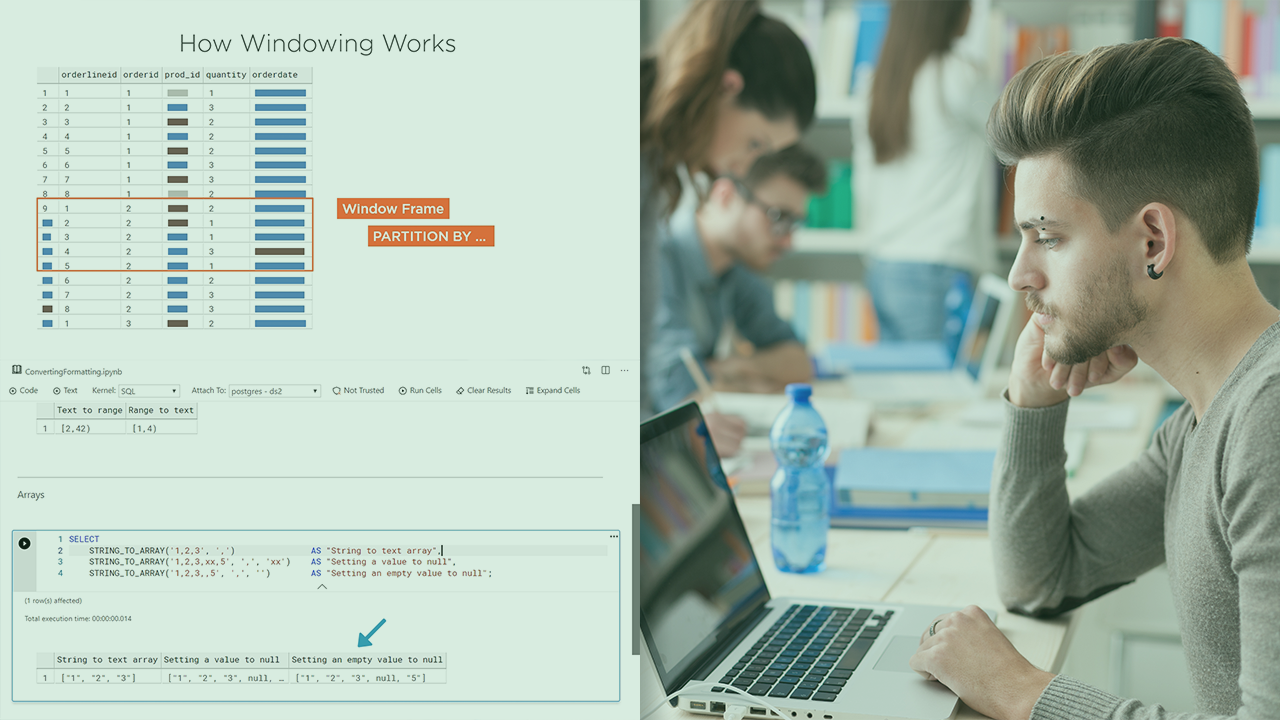- Course
PostgreSQL Functions Playbook
Most programming languages come with built-in functions and SQL is no exception. In this course, you'll learn about the ANSI SQL functions and operators implemented by PostgreSQL and a good portion of the of those unique to this popular system.

- Course
PostgreSQL Functions Playbook
Most programming languages come with built-in functions and SQL is no exception. In this course, you'll learn about the ANSI SQL functions and operators implemented by PostgreSQL and a good portion of the of those unique to this popular system.
Get started today
Access this course and other top-rated tech content with one of our business plans.
Try this course for free
Access this course and other top-rated tech content with one of our individual plans.
This course is included in the libraries shown below:
- Data
What you'll learn
At the core of a database developer's skill set is a solid knowledge of Structured Query Language, often called by its acronym, SQL. Most database vendors strive to implement as many of the ANSI SQL standards as possible, including the functions defined in that standard. PostgreSQL does a better job than some others in its adherence to the standard, including the ANSI SQL functions.
In this course, PostgreSQL Functions Playbook, you will learn both sets of functions and how they can be used to write simpler, more effective queries. First, you'll have a quick review of the most common data types and how to use functions to build, convert, and format them to get started. Then, you will explore the many other functions and operators that work on those types for a wide variety of purposes. Finally, you'll discover how to use system functions to extract data about the system itself. When you are finished with this course, you'll have a foundational knowledge of PostgreSQL functions as well as the ANSI functions it implements, that will help you move forward as a database developer, both in PostgreSQL and other database systems.
Software required: You will need access to a running PostgreSQL database with populated tables and an IDE to use for editing and running queries. The demos in the course use an instance of PostgreSQL running in a docker container and Azure Data Studio for the IDE but you are free to use a PostgreSQL database and IDE of your choice.

